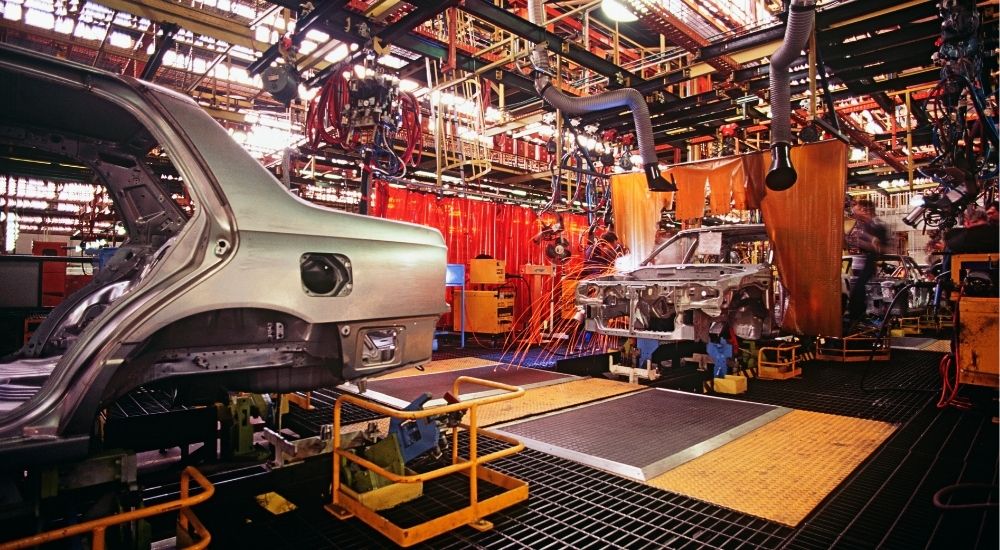The global chip shortage has worsened in the last six months which has deepened the crisis in the production of cars, televisions, PCs, and mobile devices. The lack of sufficient chips and their immediate impact on industries has now manifested more visibly. The effect has spanned across industries such as automobiles, gaming, TVs, and smartphones.
In this post, we will discuss how the lack of chips or the brains of devices has affected different industries. Keep reading.
The trouble emerged since the spring of 2020, but now the global chip shortage has become the worst reality. The global supply chain has been in the dearth after the pandemic. The semiconductor is key to the production of automobiles, PCs to mobile phones. But as it stands, the lack of chips this year will translate to $60 BN for the manufacturing houses.
Check out: Mobile phones import increased in Nepal after Lockdown
The crisis was temporary in the beginning due to Covid-19 forced lockdown. However, there is a huge surge in peoples’ demands for gadgets and the internet. Therefore, even though the chips’ production is back to normal, the semiconductor industry is racing against time to meet the exorbitant demands for the ‘brains’ of devices.
What Increased The Need for Chips?
It would be unfair to pin the blame on the global shortage of chips on COVID-19 only. The pandemic has thawed gradually. The production of semiconductors has also come back to normal. But there are the soaring demands of electric cars, smart TVs, gaming consoles, and smartphones.
Post pandemic, people’s dependency on devices has grown. Suddenly there are far more demands for gadgets than ever before. People’s desire for more gadgets for comfort has conflicted with the demand and supply structure of chips and end products. Now major industries are forced to halt or even call off their productions. Let’s enlist the impacts of the global chip shortage in different industries
Automobile Industry
Cars need semiconductors to monitor the engine and overall performance of the vehicle. The production of cars won’t move ahead without an ample supply of the chips. This is why most of the automobile industries are idle at the moment.

Ford has recently canceled two car plants and said profits could drop by $2.5bn this year due to the lack of chip. Meanwhile, Japanese Automobile giant Nissan is also cutting down its productions in Mexico and the US. General Motors have predicted that it could see a $2bn profit slip due to chips’ shortage.
Similarly, Honda, Toyota, and other auto industries have all halted their productions for weeks as they are running short of chips for now.
Analysts have estimated that the global vehicle production would be down by up to 1.5mn units this year.
Gaming Consoles
Gaming consoles are one of the favorite addition to everyone’s room. They offer very entertaining and multipurpose functionalities for our pastime. It is a multi-billion dollar industry. In 2020 alone, the gaming industry was worth $197.7bn. But they are also hard hit by the semiconductor shortage.

Sony which manufactures Play Station is expecting revenue loss. On the other hand, the plight is shared by its closest competitor Microsoft. They have also forecasted that the chip supply issue will continue till the second half of the next year causing them to lose profit.
Smartphones Industry
Smartphones are perhaps the most demanded device currently in the world. And the shortage of chips has also fallen badly on the heads of the smartphone production chain.

Back in March, Samsung CEO Koh Dong-Jin stated that there was “an imbalance between supply and demand for chips“. He declared that it was the key detrimental factor to the production of manufacturing multiple phones in the same year.
Samsung’s CEO had to say the following regarding their decision to call off their revered Note Series for 2021.
Note series is positioned as a high-end model in our business portfolio. It could be a burden to unveil two flagship models in a year so it might be difficult to release the Note model in 2H. The timing of the Note model launch can be changed but we seek to release a Note model next year.
If Samsung, a global empire of electronic gadgets (including phones) is struggling to meet the demands of chips for its products, the situation is a dire warning to all the industries around the world.
Samsung is the second producer and the buyer of the chips. However, it also faced the most brunt due to chips shortage that it had to cancel the launch of its high-end Galaxy Note Series. Check out more at https://www.nepalitelecom.com/2021/01/samsung-to-kill-galaxy-note-series.html
Stats has that Samsung sells $56bn of semiconductors to other companies, and uses $36bn of them in their own products. But even they had to call off their much-awaited device this year which is incredibly telling.
Xiaomi, a mid-range beast has its fair share. After the USA stagnating Huawei via layered sanctions, Xiaomi and other Chinese brands ramped up their productions to avoid market supply towards the end of the last year. This very move outdid the supply of chips from Qualcomm over the production of devices and the rest of the industry is partly suffering due to this.
How Will Chip Shortage Impact Nepal?
As far as the Nepali market is concerned, the global chip shortage could have an impact on the hiked prices of goods. Nepali market is import-based. India is the largest supplier of automobiles. As of now, several plants in India are halted due to the shortage of chips. That means when the final product completes and ships, its retail price could also rise.
The automobile industry has already seen a price hike of 10-15 percent due to rising costs of steel, iron ore and spare parts. The global chip shortage could further add to the crisis. According to Trade and export Promotion Centre Nepal imported transport vehicles and parts worth NRs. 4..71bn rupees. in the current fisal year.
These numbers could fluctuate due to the chip shortage at present but could also mean the prices of vehicles rise.
However, the mobile industry could become the worst victim of chip shortage in Nepal. Despite a stagnant economy, mobile imports doubled in the worst days of lockdown. Altogether worth NRs24.06 billion of phones were brought inside the country.
As classes went online, people stood home, online activities soared. The number was also aided by the end of the grey market during Covid-19 restrictions at borders.
But in the coming months, the global chip shortage could profoundly impact phone markets in Nepal. As major phone manufacturers are halting or even calling off their productions, it could soon result in a lesser supply of phones resulting in cost inflation.
Read how the government is clamping down on grey phones in Nepal:
Government To Implement MDMS soon to Curb Grey Phones
Road to Recovery
The Covid-19 pandemic is gradually declining. Manufacturing industries are breathing a sigh of relief once again. However, the supply chain is destabilized. Demand for vehicles draws more chips to itself while other industries couldn’t acquire much of them. Now the semiconductor industries are struggling to meet the demands of all other industries.
There’s no easy way out of this,” says Kristin Dziczek, vice president of industry, labor, and economics at the Center for Automotive Research. As the demands of fresh chips are exponential, back to recovery would take months. It is estimated that the supply-demands ratio would come to normal in the second half of the next year.
Recommended Read: Smartphone Vs Laptop; Which one to prefer?
What is your opinion about the pandemic’s impact on chip production? do you believe that the existing supply chain needs reforms to avoid such disaster in the future? Please provide your input in the comments section below.












